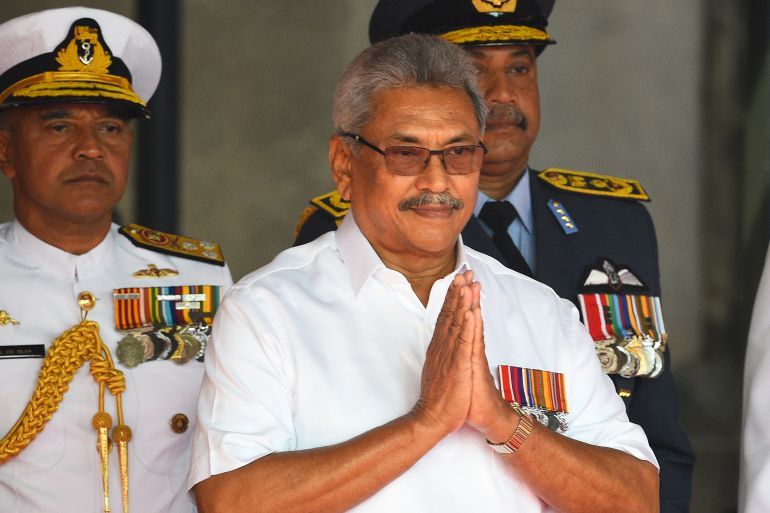Sri Lanka Parliament votes to strengthen presidential power
Legislators approve a constitutional amendment that will concentrate power in the president’s hands.

Sri Lanka’s parliament approved a constitutional amendment that will concentrate power with the president and allow duel citizens to hold political office, which could strengthen President Gotabaya Rajapaksa’s familial political clout.
The 20th Amendment to the constitution was passed on Thursday with a 91-vote majority as 156 legislators in the 225-member parliament voted in favour. Sixty-five legislators voted against.
Keep reading
list of 4 itemsGotabaya Rajapaksa sworn in as Sri Lanka’s new president
Four members of Rajapaksa family find place in Sri Lanka cabinet
Sri Lanka’s President Rajapaksa to scrap reforms limiting powers
With the change, Rajapaksa will be able to hold ministries as well as appoint and fire ministers. He will also be the appointing authority of the elections, public service, police, human rights, and bribery or corruption investigation commissions.
These commissions were perceived independent with a constitutional council comprising legislators from different political parties and civil personalities making the appointments. With the amendment, the constitutional council is abolished for a parliamentary council whose observations the president is not bound to implement.
The president can also dissolve Parliament after two years and six months of it being elected instead of the previous law that prohibited him from dissolving Parliament until six months before its five-year term ends.
Rajapaksa also overcame internal opposition to a clause that lifted a ban on dual citizens holding political office.
This will pave the way for a sibling to enter Parliament, further strengthening the Rajapaksa family’s hold on Sri Lanka’s political power. Currently, Rajapaksa’s older brother, former President Mahinda Rajapaksa, is prime minister. Another older brother and three nephews are also legislators – three of them ministers.
Rajapaksa renounced his US citizenship last year to run for president.
The amendment was passed with several changes because the Supreme Court earlier determined certain clauses in the original proposals were against people’s sovereignty and they needed approval in a public referendum to become law.
Sri Lanka has been ruled under a powerful executive presidential system since 1978, but a reformist government in 2015 clipped much of the president’s powers and gave them over to the parliament and independent commissions, saying successive presidents had been more authoritarian.
Rajapaksa, however, said reduced powers has deterred him from performing his duties.